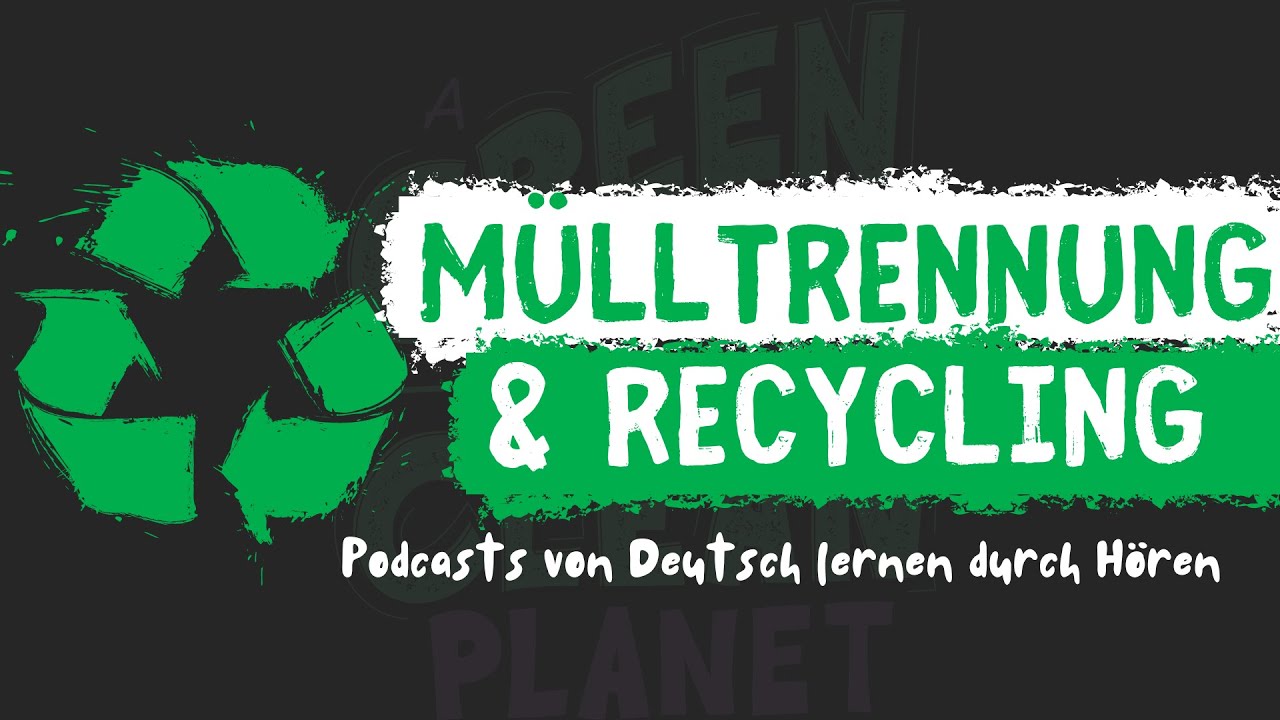Sistem Pengolahan Sampah di Jerman
Summary
TLDRThis video discusses Germany's effective waste management system, which is based on clear separation and recycling of different types of waste. Citizens are responsible for sorting their waste into categories such as food scraps, paper, household waste, and packaging. Specific guidelines are provided for each type, with strict enforcement to ensure compliance. The video also highlights the importance of separating items like bottles and batteries, and proper disposal methods. It encourages Indonesia to adopt similar practices, aiming for a cleaner, waste-free environment, and offers a model for better waste management.
Takeaways
- 😀 Waste management in Germany is a collective responsibility, with citizens playing a key role in sorting waste.
- 😀 Different types of waste must be separated into designated categories: food waste, paper/cardboard, household waste, and packaging.
- 😀 Food waste, including fruit peels, vegetable scraps, and eggshells, is disposed of in brown bins.
- 😀 Paper and cardboard waste, such as cartons, should be placed in blue bins.
- 😀 Household waste, such as broken items like hoses, light bulbs, and used bags, is placed in black bins.
- 😀 Packaging waste, such as milk cartons and plastic wrappers, goes into yellow bins.
- 😀 Glass bottles should be sorted by color (white, green, or brown) and placed in the corresponding bins.
- 😀 Used batteries must be disposed of in special collection areas at stores to prevent environmental harm.
- 😀 Improperly sorted waste can result in penalties, such as a warning from the government.
- 😀 Waste collection is scheduled, with citizens expected to place their sorted bins outside for timely pickup.
- 😀 The waste management system in Germany serves as a model for other countries, including Indonesia, to reduce waste and protect the environment.
Q & A
What is the key reason Germany has been able to manage waste effectively?
-Germany's success in waste management is due to the active participation and responsibility of its citizens in properly sorting waste.
How does waste sorting work in Germany?
-In Germany, waste is sorted into categories such as food scraps, paper/cardboard, household waste, and packaging, with each category disposed of in color-coded bins.
What happens if someone fails to sort their waste correctly in Germany?
-If waste is not sorted properly, the person may receive a warning letter from local authorities, as improper waste management can hinder the recycling process.
What types of waste are collected in the brown bin in Germany?
-The brown bin is used for food scraps, such as fruit peels, vegetable waste, and eggshells.
What is the purpose of the different colored bins in Germany's waste management system?
-Each colored bin in Germany is designated for a specific type of waste to ensure that waste is sorted correctly for recycling. This includes brown for food scraps, blue for paper and cardboard, black for household waste, and yellow for packaging.
How are glass bottles disposed of in Germany?
-Glass bottles are sorted by color: clear bottles go into white bins, green bottles into green bins, and brown bottles into brown bins.
What should people do with used batteries in Germany?
-Used batteries should not be disposed of with regular waste. Instead, they must be returned to stores where special bins are provided for their disposal.
What happens to waste after it is sorted and collected in Germany?
-Once the waste is sorted and collected, it is taken to recycling centers, where it undergoes processing to be reused or disposed of in an environmentally friendly manner.
Why is waste management important in Germany?
-Waste management is important in Germany to reduce environmental pollution, encourage recycling, and promote sustainability. Proper waste separation helps minimize landfill waste and reduces the impact on the environment.
How could Indonesia improve its waste management system based on Germany's model?
-Indonesia could improve waste management by adopting Germany's waste sorting system, educating the public about the importance of separating waste, and implementing stricter enforcement of waste separation rules.
Outlines

Этот раздел доступен только подписчикам платных тарифов. Пожалуйста, перейдите на платный тариф для доступа.
Перейти на платный тарифMindmap

Этот раздел доступен только подписчикам платных тарифов. Пожалуйста, перейдите на платный тариф для доступа.
Перейти на платный тарифKeywords

Этот раздел доступен только подписчикам платных тарифов. Пожалуйста, перейдите на платный тариф для доступа.
Перейти на платный тарифHighlights

Этот раздел доступен только подписчикам платных тарифов. Пожалуйста, перейдите на платный тариф для доступа.
Перейти на платный тарифTranscripts

Этот раздел доступен только подписчикам платных тарифов. Пожалуйста, перейдите на платный тариф для доступа.
Перейти на платный тарифПосмотреть больше похожих видео
5.0 / 5 (0 votes)






